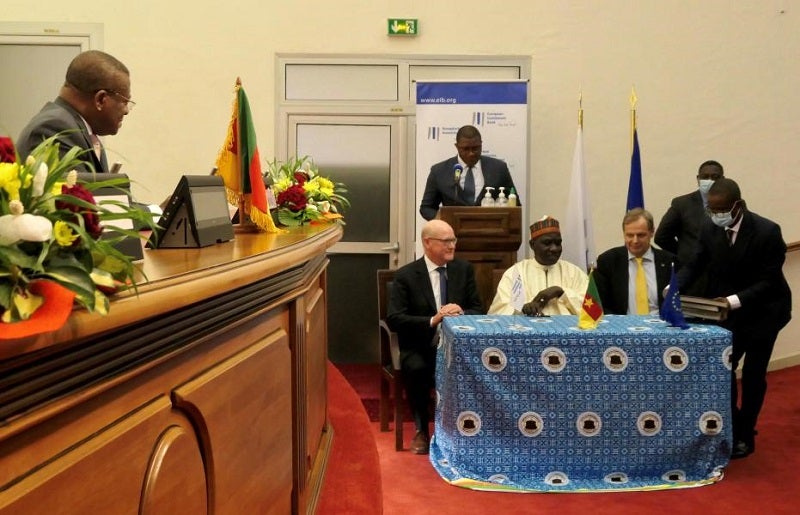
Cameroon’s Belabo-Ngaoundere railway line modernisation project has secured €123m in financing from the European Union (EU).
This includes a €17.1m grant from the EU along with a €106m European Investment Bank (EIB) loan.

Discover B2B Marketing That Performs
Combine business intelligence and editorial excellence to reach engaged professionals across 36 leading media platforms.
The new funding is EIB’s largest single investment in Cameroon and its largest ever for transport investment in sub-Saharan Africa.
Cameroon Minister of Transport Ernest Ngallè Bibèhè said: “Agreements for the financing and implementation of the Bélabo-Ngaoundéré Line Renewal Project (PRBN) signed today, mark a decisive step in the renewal programme for the entire operational rail network, initiated at the end of the 1990s. With the PRBN, we will have 330 additional km of railway track renewed, approximately 30% of the national network.”
“Operating performance will be improved thanks to the substantial reduction in journey times for both passenger and freight trains; improvement of passenger comfort, safety and the capacity of rail traffic, all crucial to shift traffic from mining in the Adamaoua Region and contributing to delivering national development objectives in the sector.”
Since its launch in 1974, the 330km Belabo-Ngaoundere track was never upgraded.

US Tariffs are shifting - will you react or anticipate?
Don’t let policy changes catch you off guard. Stay proactive with real-time data and expert analysis.
By GlobalDataThe funding will support enhancements to the rail tracks, station facilities, and rail cross safety besides supporting engineering work.
Improvements to this line are expected to conclude in 2028, with the modernised track projected to help passenger and freight trains run at 90 kmph and 70 kmph, respectively.
The €243m project will support rail travel between central and northern Cameroon, and improve links between the port of Douala, Chad and the Central African Republic.
It is anticipated to create job opportunities along the route, as well as in northern Cameroon while serving more than one million passengers annually.
The project will also receive EU technical assistance, as well as funding from the Republic of Cameroon and French development agency AFD.



